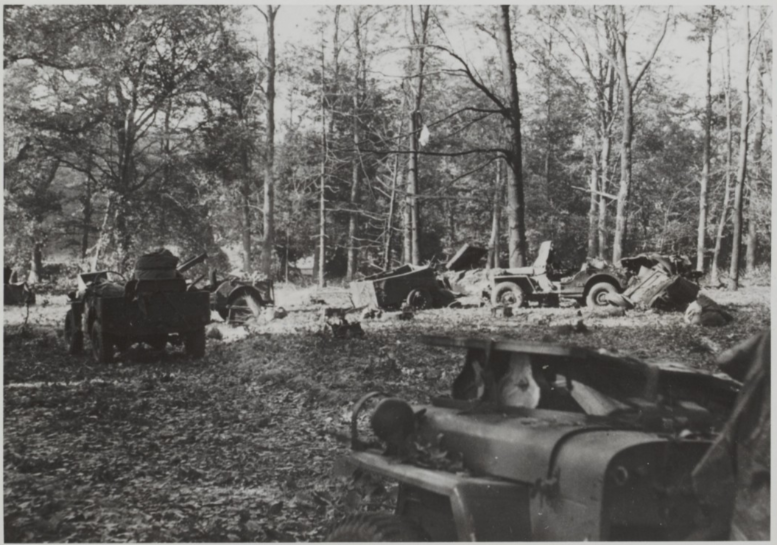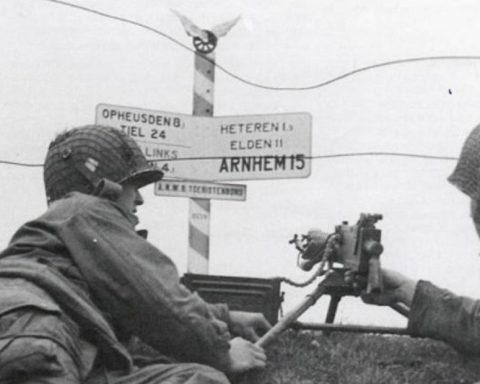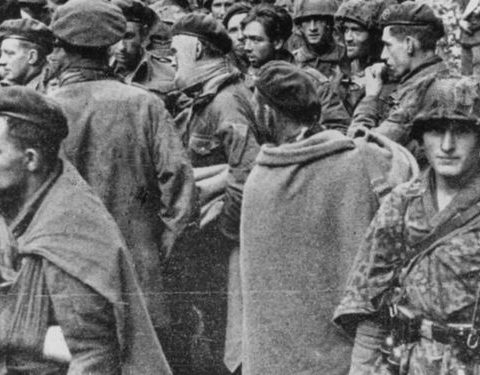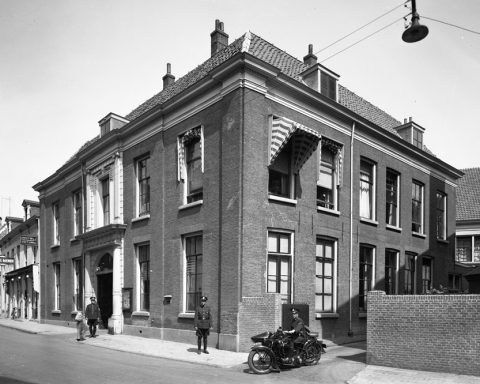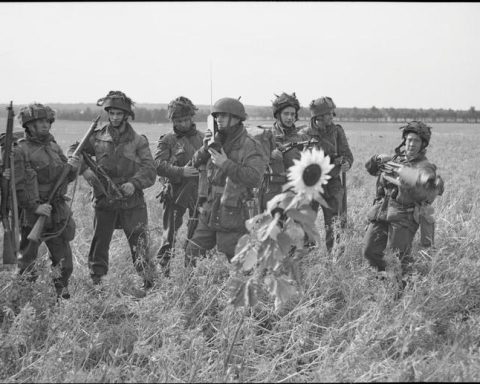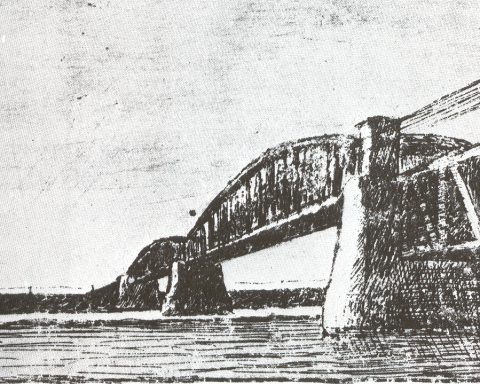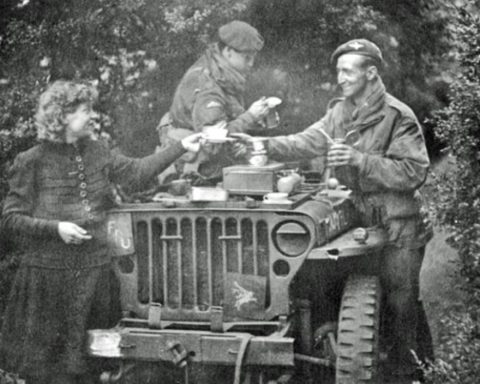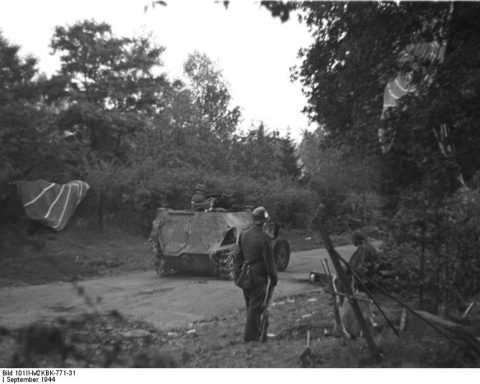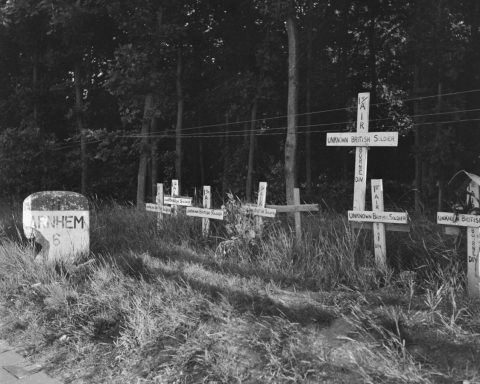After the decision was made in the early morning of Monday, September 25, to withdraw the remnants of the British Airborne Division, General Urquhart was faced with the question of how to organize the retreat from Oosterbeek. Urquhart feared that the Germans would soon discover that the British were retreating, and that this would lead to heavy casualties.
Urquhart decided to base the division’s withdrawal on the evacuation of Gallipoli. As a young officer, General Urquhart had studied the British evacuation during the Battle of Gallipoli in the First World War. That knowledge now served him well.
Urquhart planned to man the British perimeter that evening with a light screen of defenders. In this way, any German fire would be answered, so that the Germans would not realize that the vast majority of the defenders had withdrawn.
The engineers would plot two routes along the left and right sides of the perimeter. The route would be marked with white ribbons from parachutes. The meeting would take place at the Oude Kerk on the Benedendorpseweg. From there the British would walk to the bank of the Rhine, where a large number of boats were now ready to take the remainder of the British Airborne Division to the other side.
When the vast majority of the British had been transferred, the last British manning the British positions would also withdraw to the Rhine.
The British retreat across the Rhine would be covered by supporting shelling by the 43rd Wessex Division from the south of the Rhine. Urquhart hoped that the shelling would be interpreted by the Germans as a sign that reinforcements were being brought from the south to the north, rather than an evacuation of the bridgehead on the north side of the river.
Wounded remain behind
Colonel Graeme Warrack, who headed the medical department of the airborne division, had stopped by the headquarters in Hartenstein from the Schoonoord hotel that afternoon. Urquhart told Warrack that the British would withdraw that evening and that it was impossible to take the wounded with them. The doctors also had to stay behind to care for the wounded.
Warrack took the message for granted. “What time are you leaving,” he asked Urquhart. He replied that the withdrawal would begin at ten o’clock that evening.
“I’ll try to come back and say goodbye,” Warrack replied. Warrack then returned to the emergency hospital in Hotel Schoonoord on Utrechtseweg to make his own preparations. Even if the Germans did not realize that the British were withdrawing, there would undoubtedly be casualties during the evacuation.
Within the British sector, few soldiers at the time were aware of the decision to leave the perimeter that evening.
Urquhart: “We still had to fight all day and there was always the chance that exhausted men would fall into the hands of the Germans and that they would interrogate them. So only those who needed to know were initiated into the plan.”
That afternoon, Lieutenant Hardy, a liaison officer, released the last carrier pigeons the Airborne Division had been carrying. A day later the carrier pigeons reached England, where the semi-joyful message that Hardy had given one of the pigeons was read:
“Have to let go of birds due to lack of food and water. Not far from the division headquarters are eight tanks. It’s very messy, but it doesn’t bother us. Now use as many German weapons as English ones. German machine guns very effective, especially when aimed at the Germans.
Dutch people fine, but Dutch tobacco rather stringy. A lot of enthusiasm in our part for the competition to see who has the longest beard, but no time to appoint the winner.”
Especially on the eastern side of the British defense line, the British had had great difficulty preventing a German breakthrough that day. During the German attack that day, the Germans broke through the British positions, but by the end of the day the British line had been restored.
After the fighting died down in the early evening, the exhausted British soldiers on the perimeter were told they would withdraw that night. Operation Berlin could begin.

